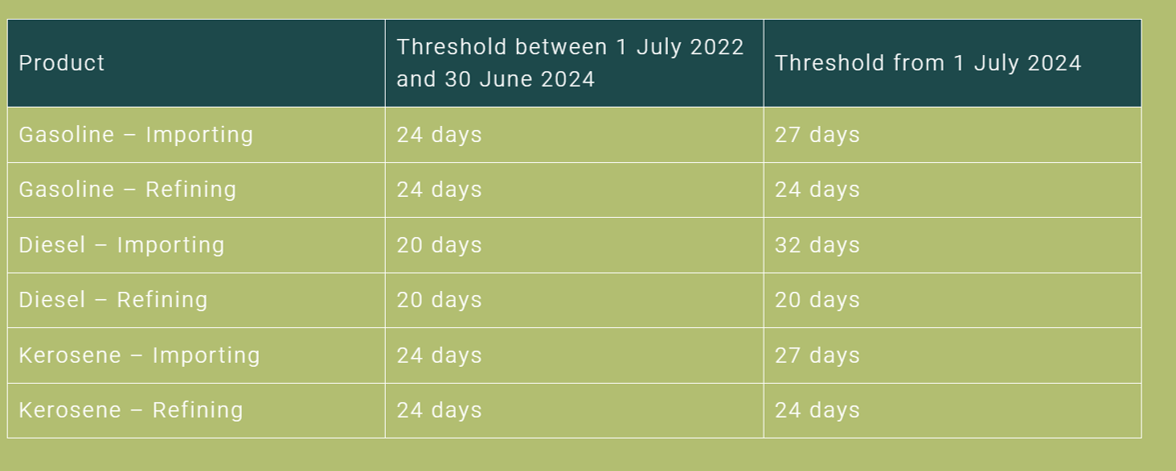Fuel prices are likely to rise as importers begin to pass on the compliance costs of new storage requirements.
The second stage of Minimum Stockholding Obligations took effect on July 1, 2024. These obligations increase the time fuels are required to be held by importers and refiners (see table below).
In an article published by McCullough Robertson Lawyers (McR), Partner Strati Pantges and Senior Associate Charlotte Aumuller said the stockholding obligations were aimed at ensuring that there was sufficient fuel in reserve to meet several days of national demand.
“In the shorter term, we have already seen importers seeking to pass through the cost of compliance with the increased thresholds to end-users,” the article authors said.
“We expect these costs to be reflected in increased fuel prices moving forward.”
Mr Pantges and Ms Aumuller said the Australian Government introduced the Fuel Security Act 2021 (Cth) in 2021 to establish a national fuel reserve.
This was aimed at minimising the impact of supply disruptions on fuel users, including in the construction, transport and resources sectors.
“The Act and the Fuel Security (Minimum Stockholding Obligation) Rules 2022 (Cth) require persons importing or refining gasoline, diesel, and kerosene in quantities exceeding 200 megalitres for gasoline and 250 megalitres for diesel and kerosene, to ‘hold’ a minimum quantity of those fuels,” the McR article said.
“The Minimum Stockholding Obligations are set at levels which are aimed at ensuring that there is sufficient fuel in reserve to meet several days of national demand.”
The requirement had led to importers and refiners making material changes to their operations where they had previously prioritised reducing overheads by minimising storage costs.
“As part of this, importers and refiners have been required to invest significantly in infrastructure for increased storage capacity (albeit with some government support through the ‘Boosting Australia’s Diesel Storage Program’),” the McR article said.
“Transitionary measures are in place to assist refiners and importers in complying with the increase in the Minimum Stockholding Obligations.”
“These include the ability to apply for a reduction in the required storage quantity before July 1, 2025, provided the refiner or importer has, among other things, taken all reasonable steps to prepare to meet the Minimum Stockholding Obligations.”
“After July 1, 2025, this will apply in a narrower range of circumstances, such as during periods of repair of infrastructure or loss of contract.”
Mr Pantges and Ms Aumuller said a key difficulty for fuel importers and refiners was predicting the future capital investment required to meet the Minimum Stockholding Obligations due to the shift from carbon-based fuels to cleaner energy sources.
“To address this uncertainty, we may see importers and refiners making use of customer storage facilities or moving away from contracting models that require delivery of fuel ‘on demand’,” they said.
The full article is on the McCullough Robertson website.










